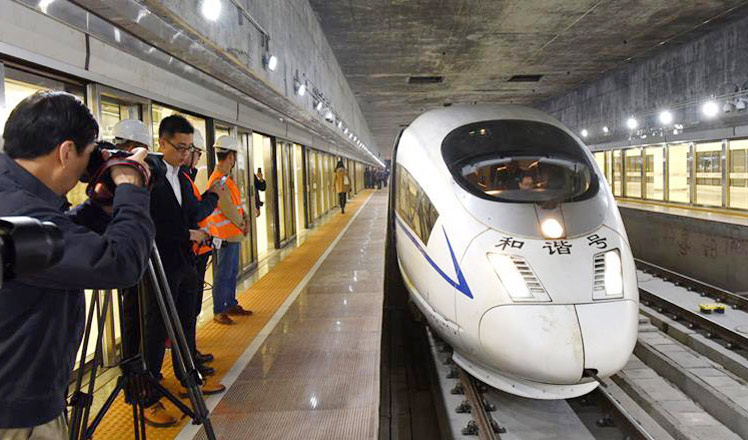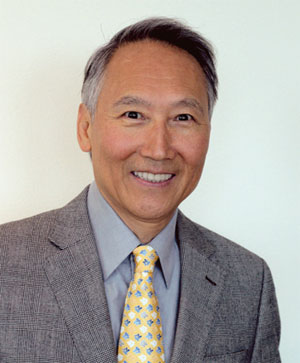Scientist cited for semiconductor work
Updated: 2015-12-31 12:31
By Lia Zhu in San Francisco(China Daily USA)
|
||||||||
Chenming Hu, a Chinese-American scientist one of eight winners of the National Medal of Technology and Innovation, has been honored for his outstanding achievements in developing transistors, or semiconductor devices.
The 68-year-old professor emeritus of electrical engineering and computer sciences at the University of California-Berkeley will receive the medal at a White House ceremony in January.
The award, created in 1980, is the country's highest honor to recognize those who have made lasting contributions to America's competitiveness and quality of life and helped strengthen the nation's technological workforce.
Hu is called a "microelectronics visionary" for work critical to producing smaller yet more reliable and higher-performing integrated circuits.
He is well known as the "Father of the 3D Transistor" for developing the FinFET, a 3D field-effect transistor with an attached fin, in 1999. It has revolutionized multigate computer chips in allowing semiconductor companies to create smaller microprocessors since Intel first used it in its 2011 production.
He also led the development of BSIM, the first international standard MOSFET (metal oxide semiconductor field effect transistor) model that has been used worldwide since 1997 to design integrated circuits worth hundreds of billions of dollars.
Hu's research, all conducted at the university, focused on transistors, the basic building blocks of all electronic circuits, also known as integrated circuits (IC) or semiconductor chips. Besides the semiconductor industry, his research also indirectly impacts all the industries that use semiconductor chips, such as cell phones, computers, the Internet, IT and cloud.
"Each of the billions of transistors in a semiconductor chip must be reliable for many years, otherwise, the cell phone or computer using the chip may fail," said Hu. "I developed the theories and methods for testing and predicting the lifetime of transistors that are under constant bombardment by energetic electrons. These methods have been used by the semiconductor industry for decades in R&D and manufacturing."
Another aspect of his research is the computer models of transistors for designing semiconductor chips.
"The large number of transistors are interconnected into complex circuits. Without a transistor model, complex chip designs would not be possible," said Hu, who led the development of BSIM, which the semiconductor industry uses to do computer simulation and design so that the electronic signals get to the right place in the circuit at the right time.
"Since the beginning of semiconductor technology, transistors have had a 2D structure. The end of 2D transistor size reduction finally arrived four years ago," said Hu. The 3D transistor (FinFET) that he introduced allows the transistor to continue to be made smaller, speedier, and more energy efficient.
Today's top cell-phone makers like Apple, Samsung and Huawei, and top computer servers all use FinFET.
"FinFET will support the future growth of the semiconductor, electronics and information technologies for the benefit of mankind," he said.
Hu was selected early this month to the National Academy of Inventors in honor of his innovation leading to patented inventions that have made a tangible impact on society.
He has authored four books including a 2010 semiconductor device textbook and 900 research papers, and has been granted over 100 US patents. He is honored with memberships in three national academies - the US National Academy of Engineering, the Chinese Academy of Sciences and Academia Sinica.
Hu received his MS and PhD degrees from Cal, all in electrical engineering. He is currently researching green transistors for a new century of growth in electronics. Hu shares an interest in painting with his sons, Raymond and Jason.
liazhu@chinadailyusa.com
|
Chenming Hu, a Chinese-American scientist, was selected to receive the National Medal of Technology and Innovation, the national top honor, for his outstanding achievements in developing transistors. Provided to China Daily |
- Top planner targets 40% cut in PM2.5 for Beijing-Tianjin-Hebei cluster
- Yearender: Predictions for 2016 through 20 questions
- Asia's largest underground railway station opens in Shenzhen
- Shanghai bans drug-using actors, drivers
- Clamping down to clean up the air
- Yearender: Ten most talked-about newsmakers in 2015
- Over 1 million refugees have fled to Europe by sea in 2015: UN
- Turbulence injures multiple Air Canada passengers, diverts flight
- NASA releases stunning images of our planet from space station
- US-led air strikes kill IS leaders linked to Paris attacks
- DPRK senior party official Kim Yang Gon killed in car accident
- Former Israeli PM Olmert's jail term cut, cleared of main charge

 Yearender: China's proposals on world's biggest issues
Yearender: China's proposals on world's biggest issues
 NASA reveals entire alphabet but F in satellite images
NASA reveals entire alphabet but F in satellite images
 Yearender: Five major sporting rivalries during 2015
Yearender: Five major sporting rivalries during 2015
 China counts down to the New Year
China counts down to the New Year
 Asia's largest underground railway station opens in Shenzhen
Asia's largest underground railway station opens in Shenzhen
 Yearender: Predictions for 2016 through 20 questions
Yearender: Predictions for 2016 through 20 questions
 World's first high-speed train line circling an island opens in Hainan
World's first high-speed train line circling an island opens in Hainan
 'Internet Plus' changes people's lifestyles in China
'Internet Plus' changes people's lifestyles in China
Most Viewed
Editor's Picks

|

|

|

|

|

|
Today's Top News
Shooting rampage at US social services agency leaves 14 dead
Chinese bargain hunters are changing the retail game
Chinese president arrives in Turkey for G20 summit
Islamic State claims responsibility for Paris attacks
Obama, Netanyahu at White House seek to mend US-Israel ties
China, not Canada, is top US trade partner
Tu first Chinese to win Nobel Prize in Medicine
Huntsman says Sino-US relationship needs common goals
US Weekly

|

|








